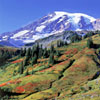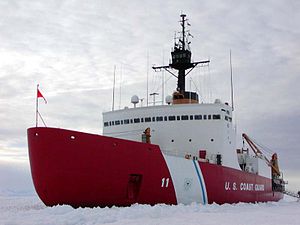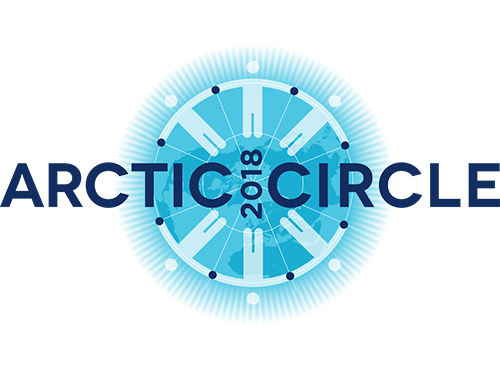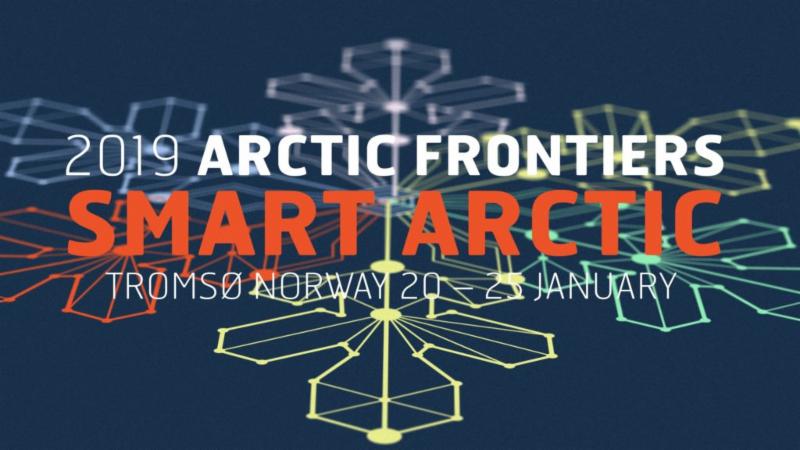|
|
|
|
|
|
|
|
No Arctic-science events are announced for today.
|
Media
Take the NSF Arctic science survey. The Office of Polar Programs at the National Science Foundation is seeking responses from the Arctic research community for its Portfolio Review Committee, which is considering the successes and potential future changes in its program structure and funding balance of the Arctic Science Section (ARC). ARC funds research within and across a wide range of disciplines, all affected by rapidly changing natural and social Arctic systems. Please consider taking the survey, here, as the responses will be crucial to the future of ARC programs. OPP is seeking frank, constructive and informative responses. The deadline to respond is September 30th. Survey responses will be anonymous, as the results are identified only by a computer-generated ID number. Only aggregate findings will be included in the final report. The survey should take less than 15 minutes to complete. There are some interesting questions, such as, "NSF ARC should fund research primarily in the U.S. Arctic," and "NSF ARC should fund only natural science projects." (i.e., not fund social science projects in ARC). NSF Survey
 Global Study Finds Taller Plant Species Taking Over as Mountains and the Arctic Warms. Global Study Finds Taller Plant Species Taking Over as Mountains and the Arctic Warms. A study by more than 100 global researchers is linking the effects of climate change to new and taller plant species in the Arctic and alpine tundra, where low-growing grasses and dwarf shrubs typically grow. Their findings have been published in Nature. Simon Fraser University biology professor David Hik, whose research is focused on the terrestrial ecology of northern mountains, was part of the massive team. A former PhD student from his lab, Isla Myers-Smith, now at the University of Edinburgh, is one of the study's three lead authors. EurekAlert
2018 Arctic Summertime Sea Ice Minimum Extent Tied for Sixth Lowest on Record. Arctic sea ice likely reached its 2018 lowest extent on Sept. 19 and again on Sept. 23, according to NASA and the NASA-supported National Snow and Ice Data Center (NSIDC) at the University of Colorado Boulder. Analysis of satellite data by NSIDC and NASA showed that, at 1.77 million square miles (4.59 million square kilometers), 2018 effectively tied with 2008 and 2010 for the sixth lowest summertime minimum extent in the satellite record. Arctic sea ice, the cap of frozen seawater blanketing most of the Arctic Ocean and neighboring seas in wintertime, follows seasonal patterns of growth and decay. It thickens and spreads during the fall and winter and thins and shrinks during the spring and summer. Phys.org
More Persistent Weather Patterns in US Linked to Arctic Warming. Persistent weather conditions, including dry and wet spells, generally have increased in the United States, perhaps due to rapid Arctic warming, according to a new study. Persistent weather conditions can lead to weather extremes such as drought, heat waves, prolonged cold and storms that can cost millions of dollars in damage and disrupt societies and ecosystems, the study says. Science Daily
Extra Arctic Observations Can Improve Predictability Tropical Cyclones. Scientists have found that additional weather observations in the Arctic can help predict the track and intensity of tropical and mid-latitude cyclones more accurately, improving weather forecasting of extreme weather events. Science Daily
 Coast Guard Renames New Icebreaker Program 'Polar Security Cutter.' Coast Guard Renames New Icebreaker Program 'Polar Security Cutter.' The U.S. Coast Guard changed the name of its heavy icebreaker program to highlight its importance to national security, as funding for the first-in-class ship may be in jeopardy. Now dubbed the Polar Security Cutter, Coast Guard leadership and backers on Capitol Hill are determined to secure funding for the planned new class of heavy icebreaker - the first for the Coast Guard in more than four decades - by marketing its vital role protecting the nation's sovereignty. "When we talk about icebreaking capability, that doesn't sell very well to all audiences," Rear Adm. Melvin Bouboulis, the Coast Guard's Assistant Commandant for Engineering and Logistics, said during the recent American Society of Naval Engineers (ASNE) Fleet Maintenance and Modernization Symposium. USNI News
|
|
Future Events
The second Arctic Biodiversity Congress is hosted by the Conservation of Arctic Flora and Fauna (CAFF), the biodiversity working group of the Arctic Council, and the Ministry of the Environment, Finland. The second Arctic Biodiversity Congress will build on the success of the first Congress, held in 2014 in Trondheim, Norway, and will bring together scientists, policymakers government officials, Indigenous representatives, Traditional Knowledge holders, industry, non-governmental organizations, and others to promote the conservation and sustainable use of Arctic biodiversity.
** New this week ** Canada Permafrost Association Annual General Meeting, October 10-12, 2018 (Whitehorse, Yukon Canada). The Canada Permafrost Association (CPA) is being formed to address the multidisciplinary nature of permafrost-- bridging natural and social sciences, engineering, and governments. A central goal of the CPA is to assist in the transfer of knowledge between disciplines and across various demographics. This will better equip Canadians to respond to permafrost-related problems. As the inaugural meeting of the CPA, participants will take part in some of the formative discussions of the Association. In addition, there will be opportunities for participants to present research findings, keynote addresses and a field trip.
 Arctic Circle Assembly, October 2018 (Reykjavik, Iceland). The annual Arctic Circle Assembly is the largest annual international gathering on the Arctic, attended by more than 2000 participants from 60 countries. It is attended by heads of states and governments, ministers, members of parliaments, officials, experts, scientists, entrepreneurs, business leaders, indigenous representatives, environmentalists, students, activists and others from the growing international community of partners and participants interested in the future of the Arctic. Arctic Circle Assembly, October 2018 (Reykjavik, Iceland). The annual Arctic Circle Assembly is the largest annual international gathering on the Arctic, attended by more than 2000 participants from 60 countries. It is attended by heads of states and governments, ministers, members of parliaments, officials, experts, scientists, entrepreneurs, business leaders, indigenous representatives, environmentalists, students, activists and others from the growing international community of partners and participants interested in the future of the Arctic.
Arctic Science Forum Associated with the 2nd Arctic Science Ministerial, October 25, 2018 (Berlin, Germany and via webcast). How vulnerable and how resilient are nature and the people of the Arctic region? How well do we understand the regional and global dynamics which are driving change in the Arctic? What impact will change in the Arctic have on us? These and other questions are the focus of this two-day conference. It will take interdisciplinary research in the Arctic to gain an understanding of past and future processes - a complex and cost-intensive venture. This makes an international network of Arctic research so important for delivering better results. Cooperation in research, the exchange of data, collaborative observation and monitoring schemes - international cooperation is imperative in research on the Arctic.
Only the Science Forum, on October 25th, will be webcast. The Arctic Ministerial, on October 26th, will NOT be webcast.
Maritime & Arctic Security & Safety Conference (MASS18) "Arctic Technology" November 15-16, 2018 (Newfoundland & Labrador Canada). Now in its sixth year, MASS has gained an international reputation as a must-attend event to gain a wide perspective on challenges, opportunities and policies related to the Arctic and North Atlantic maritime environments. The aim of this Government of Canada and the Government of Newfoundland and Labrador supported international conference is to promote stakeholder collaboration, technological innovation, harsh environment research & development, and world-class education efforts that are contributing to both Maritime and Arctic issues. This two day conference will draw a diverse group of speakers and attendees representing government, military, Canadian and U.S. Coast Guard, industry, academic leaders, Northern Leaders, research and other key stakeholders. We hope you can join us to be a part of this important dialogue
American Geophysical Union Fall meeting, December 10-14, 2018 (Washington, DC USA). The AGU 2018 Fall Meeting will mark another dynamic year of discovery in Earth and space science, serve as the advent of AGU's Centennial year, and provide a special opportunity to share our science with world  leaders in Washington, D.C. As the largest Earth and space science gathering in the world, the Fall Meeting places you in the center of a global community of scientists drawn from myriad fields of study whose work protects the health and welfare of people worldwide, spurs innovation, and informs decisions that are critical to the sustainability of the Earth.
ArcticNet: Annual Scientific Meeting 2018, December 10-14, 2018 (Ottawa, ON Canada). Canada's North is experiencing unprecedented change in its sea and terrestrial ice, permafrost and ecosystems under the triple pressures of climate change, industrialization and modernization. The impacts of these pressures can be seen on food and energy security, shipping, sovereignty, northern community health and well-being, and sustainable development and resource exploitation. All these issues have brought the North to the forefront of national and international agendas. Building on the success of its previous Annual Scientific Meetings and International Arctic Change Conferences, the Arctic Network of Centers of Excellence announces the 14th ArcticNet Annual Scientific Meeting.
 Arctic Frontiers, January 20-25, 2019 (Tromso, Norway). The Arctic Frontiers is a global scientific conference on economic, societal, and environmental sustainable growth. This year's theme will be "Smart Arctic," with a pan-arctic emphasis, and an effort to build new partnerships across nations, generations and ethnic groups. Arctic Frontiers provides a forum for dialogue and communication between science, government and industry. The plenary program will have five main sessions: State of the Arctic, Blue Growth, Smart Solutions, Bridging the Gap, and Arctic business prospects. An abstract-driven science program will address Plastics in the Ocean, the Future of Governance and Handling Vulnerability in Arctic Ecosystems, State of the Arctic and A Smart Arctic Future.
 of the AAG includes over 8,500 geographers converging from the U.S., Canada, and nearly 60 other countries in a typical year including geographers, GIS specialists, environmental scientists, and other leaders for the latest in research and applications in geography, sustainability, and GIScience. of the AAG includes over 8,500 geographers converging from the U.S., Canada, and nearly 60 other countries in a typical year including geographers, GIS specialists, environmental scientists, and other leaders for the latest in research and applications in geography, sustainability, and GIScience.
|
|

  
4350 N. Fairfax Drive, Suite 510
Arlington, VA 22203, USA
External links in this publication, and on the USARC's World Wide Web site ( www.arctic.gov) do not constitute endorsement by the US Arctic Research Commission of external Web sites or the information, products or services contained therein. For other than authorized activities, the USARC does not exercise any editorial control over the information you may find at these locations. These links are provided consistent with the stated purpose of this newsletter and the USARC Web site.
|
|
|
|
|
|
|
|
|
 Global Study Finds Taller Plant Species Taking Over as Mountains and the Arctic Warms. A study by more than 100 global researchers is linking the effects of climate change to new and taller plant species in the Arctic and alpine tundra, where low-growing grasses and dwarf shrubs typically grow. Their findings have been published in Nature. Simon Fraser University biology professor David Hik, whose research is focused on the terrestrial ecology of northern mountains, was part of the massive team. A former PhD student from his lab, Isla Myers-Smith, now at the University of Edinburgh, is one of the study's three lead authors. EurekAlert
Global Study Finds Taller Plant Species Taking Over as Mountains and the Arctic Warms. A study by more than 100 global researchers is linking the effects of climate change to new and taller plant species in the Arctic and alpine tundra, where low-growing grasses and dwarf shrubs typically grow. Their findings have been published in Nature. Simon Fraser University biology professor David Hik, whose research is focused on the terrestrial ecology of northern mountains, was part of the massive team. A former PhD student from his lab, Isla Myers-Smith, now at the University of Edinburgh, is one of the study's three lead authors. EurekAlert Coast Guard Renames New Icebreaker Program 'Polar Security Cutter.' The U.S. Coast Guard changed the name of its heavy icebreaker program to highlight its importance to national security, as funding for the first-in-class ship may be in jeopardy. Now dubbed the Polar Security Cutter, Coast Guard leadership and backers on Capitol Hill are determined to secure funding for the planned new class of heavy icebreaker - the first for the Coast Guard in more than four decades - by marketing its vital role protecting the nation's sovereignty. "When we talk about icebreaking capability, that doesn't sell very well to all audiences," Rear Adm. Melvin Bouboulis, the Coast Guard's Assistant Commandant for Engineering and Logistics, said during the recent American Society of Naval Engineers (ASNE) Fleet Maintenance and Modernization Symposium. USNI News
Coast Guard Renames New Icebreaker Program 'Polar Security Cutter.' The U.S. Coast Guard changed the name of its heavy icebreaker program to highlight its importance to national security, as funding for the first-in-class ship may be in jeopardy. Now dubbed the Polar Security Cutter, Coast Guard leadership and backers on Capitol Hill are determined to secure funding for the planned new class of heavy icebreaker - the first for the Coast Guard in more than four decades - by marketing its vital role protecting the nation's sovereignty. "When we talk about icebreaking capability, that doesn't sell very well to all audiences," Rear Adm. Melvin Bouboulis, the Coast Guard's Assistant Commandant for Engineering and Logistics, said during the recent American Society of Naval Engineers (ASNE) Fleet Maintenance and Modernization Symposium. USNI News


